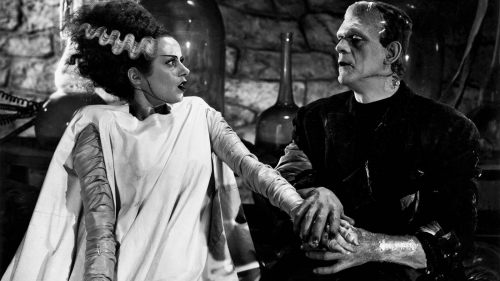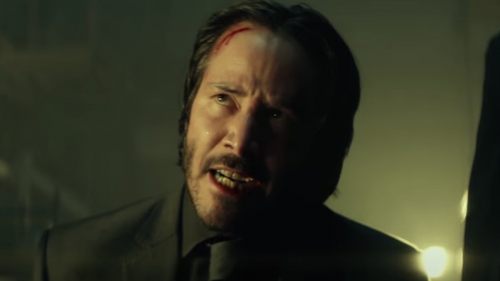The Case For (And Against) A Prince Jukebox Musical
Trying to figure out a way to properly celebrate an artist who is gone has always been an enormous challenge, but tackling Prince’s legacy must seem impossible even for those with the ambition, and muscle, to do it. As a fan, my most selfish instincts are to support and encourage his estate to remaster his catalogue as they did (albeit before he died) with Purple Rain Deluxe, and to search out never-heard gems like the demo recording Piano and a Microphone 1983. Even if I’m stubborn enough not to buy reissues of earlier albums like Prince purely because of the amount of time I spent searching in second-hand stores for quality original copies of them, I’m glad they’re much more readily available for discovery now. But beyond a broader selection of t-shirts and a guided VIP tour of Paisley Park that remains for now out of grasp, it’s tough to know just how far back to pull the curtain on one of the most prolific, and private, music artists of the 20th century, or even how deeply to sort through his expansive catalogue for ways to keeps his name in the cultural conversation.
The occasion for this existential quandary is Monday’s announcement that Universal plans to develop “an original film musical inspired by his music,” according to Variety’s diligent Justin Kroll. I mean, first of all, Universal? Not only has Prince been a Warner mainstay for decades, famously both feuding and reconciling with the corporate giant over the rights to his music, but all of his film work was produced and distributed by them as well. But apparently, the plan is not to make a biography of Prince Rogers Nelson, since Universal apparently “felt that the biopic angle had largely been covered” by Purple Rain, but to instead tell a “completely original story” driven by his songs, a la Mamma Mia or other jukebox musicals.
Now, what to think about these plans? On one hand, again, it feels like an intriguing and unique way to honor Prince’s library by using his songs as the soundtrack and narrative backbone of a story about other people of color (presumably/ hopefully/ if they have half a clue). Prince is an incredibly vivid songwriter and storyteller, and so many of his songs could lend themselves easily to some extremely powerful dramatic scenarios. But on the other, what makes Prince so endlessly compelling is the mystery, and contradiction, of his work, which uniquely combines the profane and sacred, romantic and religious, wholesome and downright filthy in ways that quite frankly feel far too risky for a major studio like Universal to dig into at deeper than surface level. Prince amounts to far more than his two-volume Hits collection (even with that b-sides disc thrown in for good measure), and Hollywood’s increasing aversion to anything remotely risky or challenging puts the filmmakers involved in a disadvantageous position from the outset to represent his work in an even semi-complete way and tell their story at the same time.
Universal’s success with Mamma Mia and the Pitch Perfect films puts them in a good position to be able to promote such a project, but what’s interesting about the analysis in Variety’s original report is how the project gets pegged as a prospective commercial follow-up to films like Here We Go Again, Bohemian Rhapsody and last year’s runaway hit The Greatest Showman. Prince’s music certainly promises immediate name recognition, but what a project like this more closely resembles is Julie Taymor’s Beatles-inspired Across the Universe, or if we’re lucky, Todd Haynes’ kaleidoscopic Bob Dylan tribute He’s Not There. Again, those both offer riskier approaches to celebrating an artist’s life and work that Universal seems unlikely to embrace, though they also come with the possibility of greater critical adulation (perhaps at the expense of broader box office appeal).
Then of course there’s the fact that there are as many as 1,000 songs rumored to be stored away in Prince’s vault. Spike Lee, who directed the music video for “Money Don’t Matter 2 Night” from Diamonds and Pearls, acquired one of his previously-unreleased Piano and a Microphone songs, “Mary Don’t You Weep,” for Blackkklansman - a fitting combination that underscores the power and versatility of his songs. But even if Universal doesn’t get access to any of the 40-plus projects currently listed, there’s plenty of music that he actually created for films - outside of his own - that languishes in that mythic vault, waiting for someone to pair it with the right imagery. Some of those songs from James L. Brooks’ aborted musical I’ll Do Anything eventually appeared on other Prince albums or compilations, but surely there’s material in there that could be repurposed or rediscovered - though again, with only a presumption that the Purple One would give his permission to do so.
As a person who owns his own share of alternate versions, b-sides and bootlegs, I have to embrace my own hypocrisy in pointing out, as a last question or objection to this endeavor, how ready are we to trust that his heirs, the people presiding over Prince’s estate, know and choose what is the best way to disseminate his remaining and unheard work? This is an artist who famously hired Kevin Smith to make multiple documentaries about his life and work, then buried all of the footage, and then refused to let Smith license any of his songs for Jay and Silent Bob Strike Back. He wrestled with Warner Brothers and even the internet itself over the concept of ownership of his work for huge chunks of his career, in conflicts that only barely seemed resolved by the time he reached an agreement for Purple Rain Deluxe, a project announced and reportedly completed to commemorate the film’s 30th anniversary but not released for another three years.
Finally, it feels like certain entire projects, most notably Purple Rain itself, would have to be ruled out. Because who decides in what scene to put “Take Me With U?” Or how to use “Starfish and Coffee” without naming the film’s female protagonist Cynthia Rose? Or who has the audacity to write a scene for “Sometimes It Snows in April” that feels either like a superficial tribute to some new character named Tracy, or a funeral dirge for Prince himself? So many of his songs resonate with such a specificity of content, context and tone that they’ll feel not just anachronistic but inappropriate if used to punctuate the stuff of some sort of flimsy, derivative rock opera, and prove too weighty for whatever cliched love story gets concocted to glue them together.
In other words, suffice it to say that Universal has a tough road ahead with a project that appears to start off with more obstacles for success than opportunities. But given how many have been influenced by Prince’s talent, one supposes, or maybe hopes, that the Universal executives will find musicians, filmmakers and storytellers not just with the chops to recontextualize his work, but the discipline to do so with intelligence and sensitivity. Even if some of the art he produced was, with reluctant honesty, occasionally bad, he is simply too great an artist to deserve - much less inspire - less than greatness in others, especially those who mean to honor his legacy.



